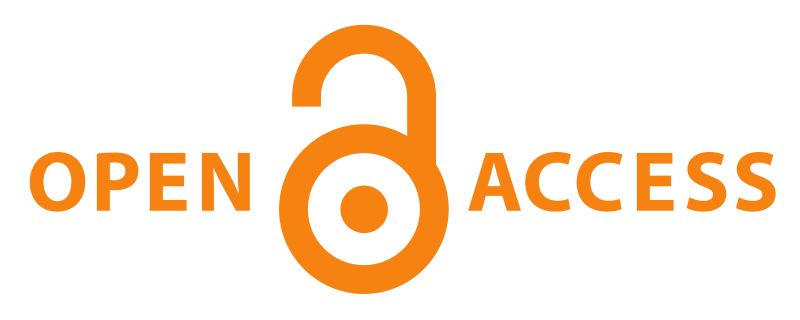What is Open Access to you, and why does it matter?
Open Access is a means of reclaiming the authors’ rights of individuals who do research, and leveraging those rights to create permanent and equitable access to the intellectual output of research communities. Not enough people talk about the idea of a public knowledge commons, because we are becoming accustomed to commodified knowledge. On a university campus, we are members of a club that gives us the ability to take access to professional literature and other information for granted. We don’t think about what the Libraries spend in dollars or in effort to create this wealth of rich knowledge that we get to live in.
From the perspective of a public institution, Open Access needs to be the default. Students and their families pay tuition, and working people pay taxes to support universities and scholars. It only makes sense then that the discoveries that take place at Carolina and other public campuses be made available to every citizen. The publishers do not contribute to the livelihood of our faculty, beyond the inclusion of a journal title on a CV, but they make a tremendous profit selling our own scholars’ work back to us.
Open Access is needed not only to make libraries sustainable by mitigating costs of acquisition and subscriptions, but to extend the reach and use of research output to address public issues and information poverty.
What is OA Week?
Open Access Week is an annual, week-long happening that celebrates Open Access efforts and creates awareness about Open Access issues all around the globe. At the global level, it is promoted by SPARC (the Scholarly Publishing and Academic Resources Coalition), but it very much a product of a community of communities. Each year, there is a theme, and participating institutions present events that tie into that theme. This year’s theme is “Designing Equitable Foundations for Open Knowledge,” and thus it only makes sense that we centered our events at UNC around the WiderNet Project.
Can you tell us about your involvement in OA Week?
I have been the project manager for the creation of these events, responsible for the scheduling and coordination of participants, and for the communication and logistics planning. I took this work on as a Field Experience student, in order to fulfill the last three credits toward my MSLS. However, the issues we are talking about are foundational to information equity, which is a central goal of librarianship. I have continued to take on some tasks on a volunteer basis as the week approaches, both because I still have much to learn, and because I am passionate about bringing others into the conversation.
Why should Digital Humanists be interested in OA Week events?
The paywall is a serious problem for Digital Humanities. The evolving ways that large publishers exert copyright creates barriers for both the research process and for the digital product that results from Digital Humanities work. If humanists are not equipped to address problematic publishing rights, they are inhibited not only in the source materials they can access in terms of data and text, but in the ways they can process and remix information in their syntheses, and share their insights in various forms. A pillar of DH is the creation of works for the public good. This is impossible without negotiating both the right to read and the right to share.
Have you worked on any similar projects before?
The short answer is no, but what I am doing now is certainly informed by previous projects. The media creation and outreach activities are well in my domain, having done similar work last year for Carolina Digital Humanities and previously. I worked on the National Digital Newspaper Program (NDNP) during my first year, and this included considerable attention to copyright details. The NDNP uses archival microfilm reels of historic newspaper to create a text-searchable, freely accessible and permanent digital collection on Chronicling America, a website hosted by the Library of Congress. For the first time, the project was selecting newspaper titles that were published after 1922, which thus could not be assumed to be in the public domain.
What’s your dream project?
That’s a tough question. I am a new MSLS looking for my first job, so it’s hard to be particular. My “reach” job of the moment is a digital public history project with a focus on Southern politics and civil rights, but I refuse to jinx it by being more specific than that. I would love to have a basic liaison/reference/instruction role, since my graduate work experience tended toward these niche projects. My Master’s research explored the need for a collaborative model of library instruction to assist underprivileged students with making the leap into college. Ultimately, I think there is a way that all of these things feed into each other. I am only too aware that information is a privilege. I would like to think that these different knowledge communities could arrive at a “unified theory” of information sharing, and that is where my passion lies, not just in making it available, but making something that people of any background can understand and become a part of. It harms no one to create knowledge equity, and no matter the role, there is a way to use the power we have to erode the exclusivity of our resources.
Anything else you’d like to tell us?
We are very excited to have three different events involving the WiderNet project. Their eGranary project creates a hybrid collection of Open Access materials, and proprietary content that they have obtained permission to share, to create a powerful offline information resource that is then deployed to areas with inadequate internet infrastructure. The eGranary can be customized for the particular needs of different users, from schools to medical facilities, and its user interface operates much like a typical Web browser. This is a wonderful example of what we might call a “next phase” of Open Access, demonstrating what is possible when we can make information freely available.
To learn more, please visit the OA Week website.

